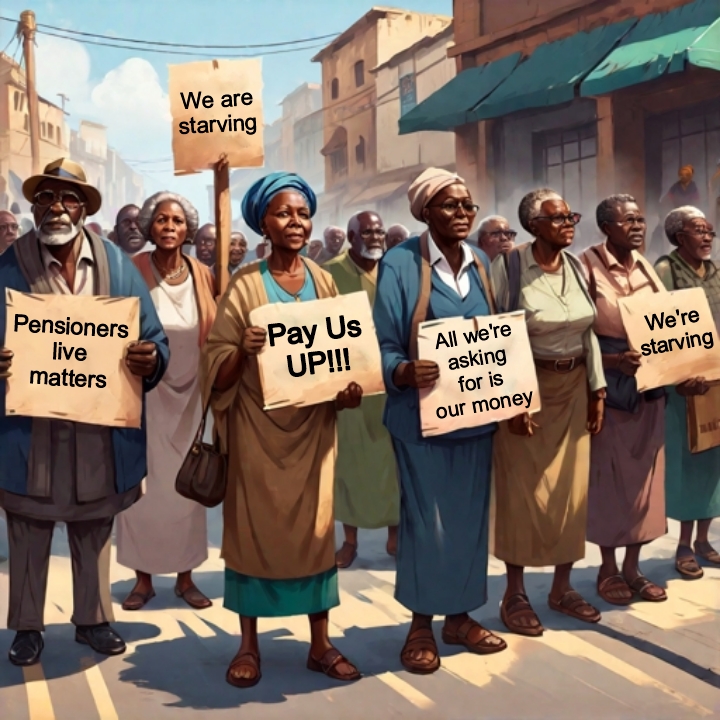Dear Beamers,
Greetings! In our dedication to delivering detailed insights, we’re excited to present this week’s newsletter, as we amplify the voices of the underappreciated and struggling retirees in our society.
Transitioning to a new lifestyle in the approach to retirement age can be daunting, especially for those who depended on their career for income, identity, and purpose. Concerns about financial security, particularly if insufficient savings were set aside for retirement, lead to worry about managing healthcare, housing, and other expenses without a consistent income. This situation often results in feelings of depression, and uncertainty about the future.
“Losing your career hits deep – it’s not just a job, it’s a piece of who you are. That loss can stir up isolation, and a heavy dose of depression. And it’s not just about you; the relationships you’ve built at work take a hit too. Wrapping your head around the fact that your whole lifestyle is about to change with retirement is no easy feat. It’s not just a shift in routine; it’s a seismic shake-up. This isn’t just about work; it’s about your entire life.” Says Pa. Odeon a retired accountant
Pensions act as a vehicle for individuals to amass savings during their working years, ensuring financial support for retirement. This is mostly achieved through the provision of an annuity. Moreover, pensions play a role in supplying funds to end-users, including corporations or governments, thereby supporting their investment goals.

Regrettably, the administration of pensions in Nigeria has faced policy inconsistencies and numerous challenges since its inception. Foremost among these challenges is the persistent delay in disbursing pensions and gratuities to deserving retirees. Factors contributing to this issue include a lack of accountability, inaccuracies in pensioners’ records, embezzlement of pension funds, and significant incompetence on the part of pension administrators.
Retirees lack robust national unions, unlike the working class, which has various options such as the Nigeria Labour Congress, Trade Union Congress, Academic Staff Union of Universities, and others. This absence leaves retirees feeling disadvantaged in their efforts to be heard and addressed by the government.
The term ‘senior citizen’ in Nigeria, when applied to retirees, seems to carry an element of mockery. Instead of conveying respect, it appears to be a disrespectful expression coated in irony, as these individuals often lack the associated benefits typically expected for senior citizens.
In certain developing countries, including African nations, elderly or retired civil/public servants are well-treated, appearing healthy, as they face no challenges with their pensions. However, the situation differs in Nigeria, so we can say its an issue of different developing countries with different priorities.
Retired individuals in this country often endure hardships related to their entitlements. Numerous stories depict instances where elderly individuals are subjected to long-distance travel and extensive queues for personal identification before receiving their rightful payments.
Prosper Chimezie recently recounted a touching narrative detailing his mother’s prolonged struggle to receive her pension following several months of retirement. In his words,
“My mum who retired long ago from being a government school teacher kept having issues with getting her pension. She would message the Nigerian official pension account with no reply and calling is worse as it won’t even get through. The old woman was advised to travel to Abuja for pension verification as it might be reason she’s not paid, which she did.”
He added, “She was in Abuja for almost a week after travelling long distance on road she’s still battling long queue. Eventually it was her turn and she realised her details were correct except for the account receiving pension implying that someone with identical details had been collecting her pension. The error was not from her but who cares that is the predicament of being a retiree.”
Tragically, situations similar to this have condemned many civil service pensioners to abject poverty and misery. Some pensioners are compelled to resort to begging for survival, while others have passed away while waiting for the disbursement of their gratuities.

The government’s role in prioritizing pension payments is often questioned, especially when substantial funds are allocated to contracts for roads and other projects while pension funds for its staff remain unpaid. This raises concerns about the government’s priorities, as it appears that personal gains from certain projects are given precedence over fulfilling obligations to retirees.
Joshua Terem, the Marketing Manager at Terem In-State Logistics, has his opinion conveyed that,
“The intentional delays in implementing the reformed pension scheme, with the aim of deferring payments or passing the burden to future governments, are profoundly concerning. Adding to this, some employers not only accepted the reform but also neglected their obligation to contribute, deducting money from workers without remitting it to pension administrators.”
In Nigeria, a corrupt system and leadership issues have significantly compromised the standards of living for retirees. Adding to the challenge, corrupt practices among pension staff exacerbate the situation, with some deliberately delaying the timely payment of pensions and gratuities until they receive bribes.
Echesurum Paul asserts that members of the pension staff are entangled in corruption, diverting retirees’ savings for personal greed. According to Echesurum Paul,
“The situation with pension payments is alarming as governments’ irresponsibility is worsened by corrupt practices among pension staff. The inclusion of ghost pensioners and manipulative tactics creates a burdensome payroll, hindering immediate payments. What surprises me the most is how the judiciary go blind on all these happenings. No one is fighting for the children, no one is fighting for the aged citizens. This system is beyond my sanity in every way.”
The Nigerian Pension Commission holds the authority to safeguard the integrity of pension assets and ensure that eligible workers and pensioners receive their entitlements in a timely manner. Its primary responsibility is to guarantee that the income security and welfare objectives for individuals during their old age are adequately fulfilled.
Their failure to protect calls for an individualized approach to plan our future, recognizing that normal civil/public salaries are low, and pensions, being derivatives of these salaries, might be even less substantial. It emphasizes the need to avoid sole reliance on the government, acknowledging the uncertainties in our society.
Retiree Obinna Otti shares insightful advice for the current working class, encouraging thoughtful decision-making before the imminent arrival of retirement. In his words,
“The Nigerian pension system’s unreliability raises genuine worries about the dependability of received pensions. As you age and pursue personal goals, it’s crucial to invest in both your physical and financial well-being. Depending solely on saved funds for old age might disappoint, given the uncertainties surrounding their availability. Despite it being your money in theory, the harsh reality implies it may not truly be yours when needed.”

Relying solely on the anticipated support from children as they grow older and enter the workforce may not always be dependable, especially in a society marked by escalating inflation and widespread struggles for basic needs. Civil servants are encouraged to explore diverse forms of intrapreneurship or entrepreneurship to supplement their savings. Prioritizing financial literacy, enhancing social networks, and improving overall health before retirement becomes imminent, are crucial steps in ensuring a more secure and well-prepared future.
In conclusion, securing social security for the working class and older citizens is not just a responsibility but a cornerstone of fundamental human rights. Nigerian governments should address the challenges faced by pensioners. Also Labor union should lend their voices in advocating for pensioners, simultaneously protecting their own future. To fortify the foundation for a more equitable and sustainable future for all, we owe this responsibility to those who contributed to the growth of our society.




